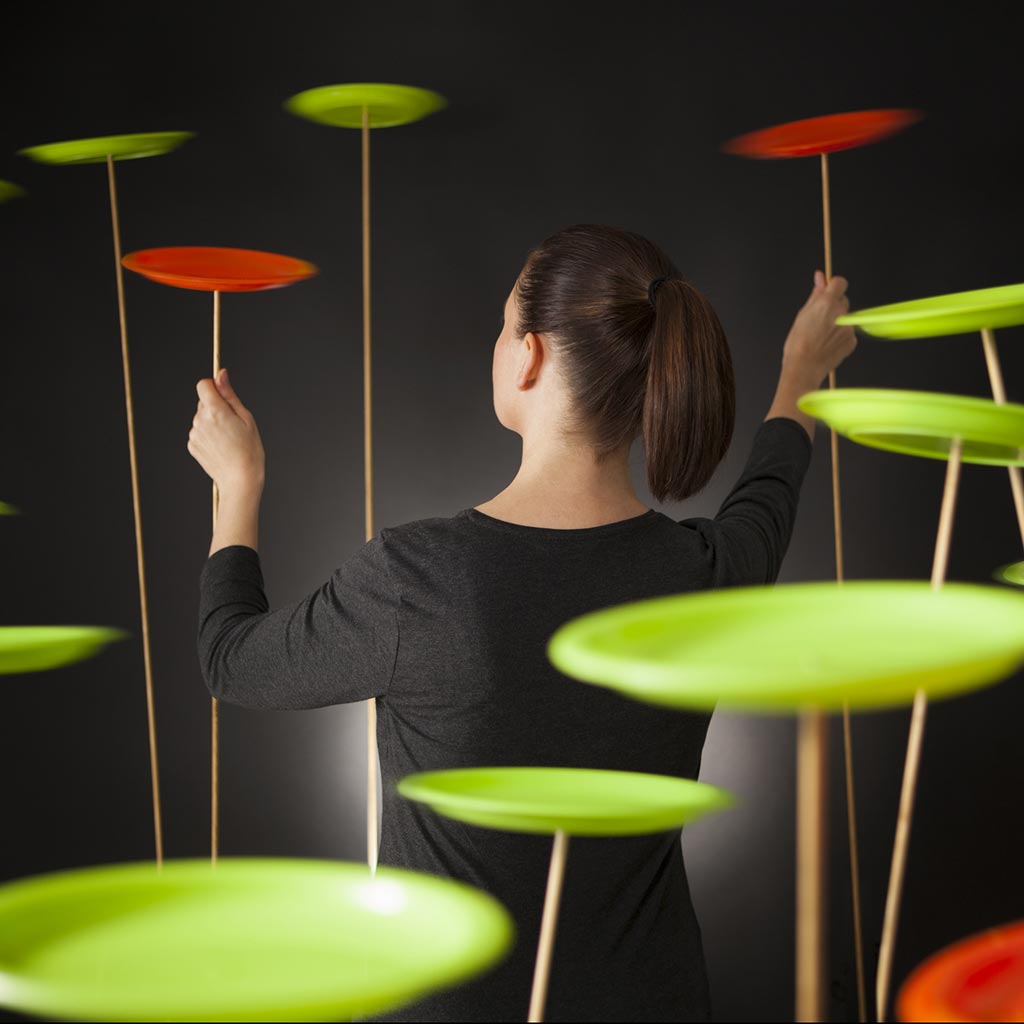Doing consumes our waking hours. There is always more to do, like a continuous stream of one thing that leads to another. They blend into each other, become automatic to some extent. The automatic is great, it allows us to do more – let the auto-pilot take over so that we can direct our energy to other things. Doing things the way we’ve always done them takes very little effort, we can kind of just let the record play by itself.
Have you ever noticed the incredible effort it takes to learn new skills? We’re building new neural pathways. We have to repeat things over and over again, follow the same route, establish the groove, as we gather the little nuances and firmly establish the new route that we can travel with ease.
Plate spinning
There is such comfort in knowing what to do, in letting it flow and following an established route. It is a beautiful design that allows us to maximise our efforts. Like a plate spinner, get one going, move on to the next thing, get it going, giving any plates that need a little momentum a quick spin now and then to keep it all going.
But sometimes, what we’ve always done doesn’t serve us anymore. Maybe the world around us has changed or something has arisen from within us that causes us to question what we’ve always done. We no longer feel comfortable with our automatic response, but we don’t know what else to do.
Life is always new! One moment, then the next. It would be very boring if it was always the same. We need the new. I’ve often pondered the process of listening to new music. It takes time to like new music. There is that wonderful period when something new is becoming familiar before it becomes too familiar. Like a fresh breeze blowing through us. An interesting interplay between what is fresh and what is familiar. We need both – what is novel or new and what is known and familiar.
But the new can be scary. When there is too much that is unfamiliar it can become overwhelming. When lots of the plates have stopped spinning and not much feels like it is in flow. Then we know it is time. Time to put the effort in, find some new ways of doing. At times like these the doing arises from stillness, from stopping, listening. Sometimes waiting for the best response to emerge. It can be very scary to stop, to allow, to be open, to be welcoming. It is times like these that we feel most out of control. We define ourselves by our actions in the world. What we do is who we are.
Crashing plates are a blessing in disguise
And yet, when all the activity falls away there is something of us left. Just our presence, here and now. Times when all the plates come crashing down are blessings in disguise. We get to rediscover ourselves anew from the depths within. All the doing will ultimately stop, whether we like to believe it or not. Take a look at the world around, everything is in the cycle of life – growing, stabilising, eventually dissolving. We are part of this cycle. Can we discover the part of us that never changes, that is always still? Can we discover that we are more than our doings? That we are more than our concepts and theories. Who we really are without all the roles we perform.
We don’t have to wait for all the plates to come crashing down to find our being (that is, not doing). It is always here, in the background. All we have to do is stop doing (I recognise the contradiction). Having a mindfulness or meditation practice is one way, a more formal way to ensure that we take time to stop the momentum and come back to the stillness from which it all emerges. At first there may be anything but stillness as we meditate, but just practising consistently, with the intention to reconnect to our background stillness is the surest way to find it.
Finding the spaces in between
More informally we can interweave mindfulness throughout our day; stop and take one full conscious breath, all the way in and all the way out. Look at the sunset or sunrise or that beautiful flower in bloom. Notice the incredible fresh green new growth of spring or even the withering blossoms on the trees. Feel the air on our skin. Go into that wordless place of wonder at the beauty in nature. Stop to feel gratitude for the little things in our life that we appreciate; the smile or laughter of a child, memories of loved ones, relationships, the warmth of the sun, or a lovely cup of tea. We can start to notice the spaces in between the doing.
Who we are is beyond words, beyond concepts. Let your head have a rest and feel it in your body; the sensations, wordless feelings, your gut instinct. It’s the most amazing paradox – we are so much more than our bodies and the only way to discover the fullness of who we are is through the portal of our bodies. By really settling in to the depths of our physicality, really feeling our existence, from the inside.

